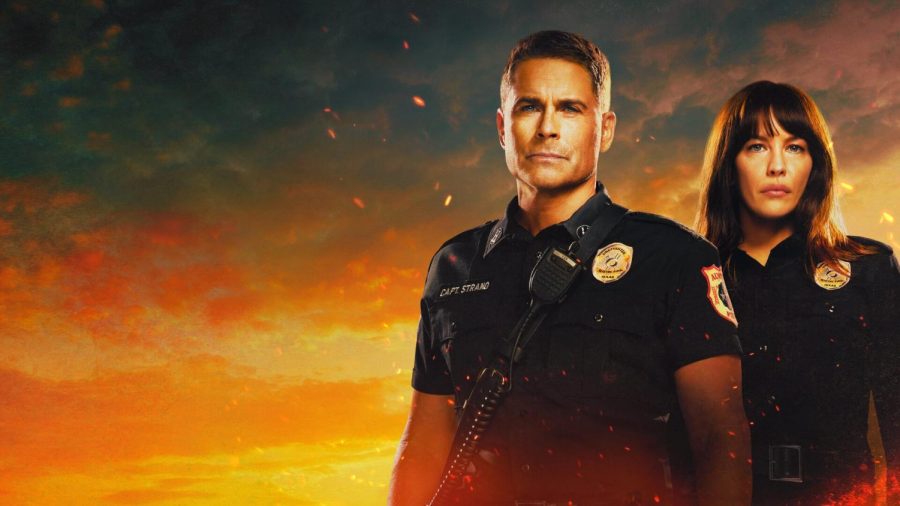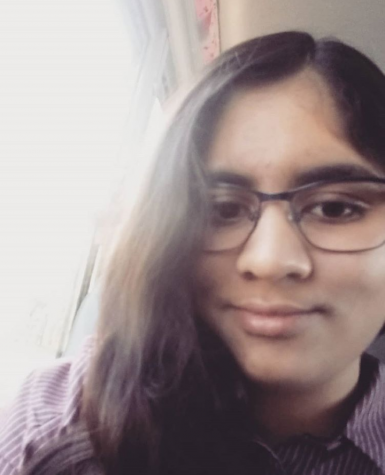“9-1-1 Lone Star” is a Disgrace to Austin Culture
Fox Entertainment
The two main characters of the show pose on a poster for “9-1-1 Lone Star” in their police uniforms.
January 30, 2020
From the makers of the hit show “9-1-1” comes a sudo-spinoff “9-1-1 Lone Star”, taking the main characters Owen Strand (Rob Lowe) and his son TK Strand (Ronen Rubinstein) from the hustle and bustle of the Manhattan city life to Austin. While the chance for Austin to be nationally showcased should bring joy, the lazy stereotypes of Austinites and the local culture show that “9-1-1” failed to do even the most basic research.
“9-1-1” thrusted viewers into the frightening and high paced situations of first responders in the first season of the show, and continued on with the sometimes radical, yet entertaining, heart stopping situations in the second and third season. The show follows a team of first responders, from firemen to 9-1-1 operators, as they handle personal and professional difficulties. Personally, Owen Strand is dealing with stage 1B lung cancer as a result of being a first responder in Manhattan on 9/11. His gay son TK Strand is dealing with substance abuse as well as a broken heart. In order to cope with the new changes in their lives, Owen Strand plans to relocate them to Austin, where almost everyone on the force has been killed by a nitrate-fueled explosion.
While it would have been nice to see these characters adjust to the changes between Manhattan and Austin, the show portrays the city to be rural in nature, full of barbeques and two-stepping. While the stereotype is somewhat accurate, basing the show off of one dimensional characteristics fails to make Austin seem like a real city. Going from the action packed nation of Manhattan, full of earthquakes and murder, to the first episode of “9-1-1 Lone Star” where someone chokes on a Carolina Pepper is an unessesary contrast. The show constantly pans from a real shot of downtown Austin to a clearly fake “Texan home” built in a studio in Los Angeles.
The show goes between portraying Austin as a rural bigotry town, and a modern hipster hangout. Mentioning “yoga studios and organic food markets” are only a few of the stereotypical hipster attitudes they are trying to create. Mentioning how Austin is like New York, except that it has less trash and cheaper real estate (which is clearly not true, especially with the so called “Hill Country views” Owen Strand has in his home). Combining these “wannabe New Yorker” ideals with a spew of “Yee-haws” and “Howdy’s” only complicates the narrative even further.
Adding onto this, the main conflict of the show unnecessarily stereotypes Texans as discriminatory people. In order to fill the gap left by the killed Austin firefighters, Owen Strand assembles a diverse team with his son, a muslim woman named Marjan Marwani (Natacha Karam), a black transgender man named Paul Strickland (Brian Michael Smith), and Mateo Chavez (Julian Works), a Latin American man who failed the entrance exam multiple times. However, the team is met with criticism from the remaining Austin team members, and the general public. TK Strand even notes that “People here would lose their minds” when his father is creating the team, which is completely inaccurate. Austin is nationally known for its support for the LQBTQ+ community. While there may be a small population opposed to change, many Austinites can vouch for themselves and say that as a population, we are tolerant of all religions and races. This can clearly be seen by our yearly pride parades, diverse restaurants and welcoming communities across the city.
While the acting dynamics between the main cast are great, giving a great opportunity for minorities to shine in an inclusive show, the shows creators Ryan Murphy, Brad Falchuk and Tim Minear could have done this without insulting Austinites in the process. If a show is based in a new location, even the most basic research should be done to prevent a situation such as this again. While some rewriting and research could possibly fix the show, looking at the most recent episode where a tornado storms through Austin even though the epicenter of tornadoes in Texas is Dallas, it’s clear that it won’t be the case. For now, the only realistic things Austin residents can get from the show is the pans of downtown and the side comments about the horrible traffic.




